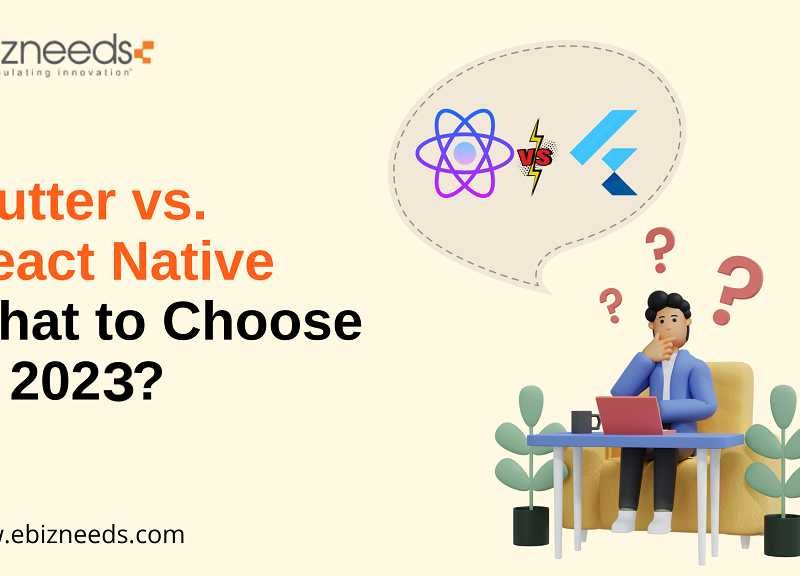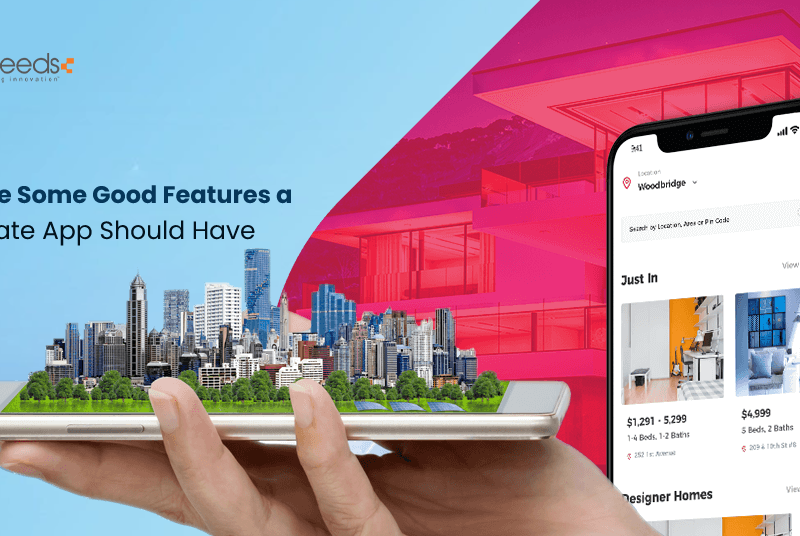Last updated on February 13th, 2024 at 05:08 am
Cross-platform application development is a popular strategy with iOS as well as Android systems for application owners. To support the cross-platform mobile application development, a lot of technologies have been emerged in the market, to offer better services to users. One of the most famous web development frameworks that is becoming popular amongst developers is Flutter. This open-source framework is considered flexible and useful to go with cross-platform application development.
So if you are an app owner or a developer who is planning to develop a mobile application with a suitable framework, then Flutter is worth the shot! But what are the pros and cons of Flutter that can live up to its claim of being a reliable and effective website development framework? But before discussing it, we shall first discuss…
An Overview of Flutter’s History
In 2015, Google started developing Flutter, which was in beta until its official launch in late 2018. Flutter 1.0, the stable version, was launched in December 2018.In 2019, Google decided to pay a little more attention to flutter and decided to launch a preview version of Flutter for web application development. The further release of Flutter, i.e. Flutter 1.12 in the industry with improved features such as widgets, APIs, tools, better SDK, dark mode, iOS visuals, and web support.
In 2013, Google launched Dart 2.3 SDK with some extra support of UI/UX as code features. This version was one of the most stable releases with the integration of some new languages features for improved coding experience for flexible user interfaces. Since then, Flutter has gained popularity and capabilities like nothing before. In just a few years, Flutter has become a hot topic and some of the big giants such as Hoookle, Alibaba, Birch Finance, Coach Yourself, and some others have developed their business websites on Flutter. So if you are planning to develop your web application with Flutter, then you must know the risks and advantages involved with Flutter Web Application Development for your business.
What is Flutter?
Before we dive into the pros and cons of Flutter app development, we must know about what basically is Flutter? Flutter is an open-source web app development SDK framework for developing a cross-platform application that offers a native-like feel. Flutter offers various tools, widgets, and features that enable app owners and developers to create attractive and flexible mobile applications for Android and iOS platforms.
While creating an application with Flutter, you don’t have to write separate codes for Android and iOS, as a single code base can be used for creating cross-platform applications. Flutter is a free web application development platform that is based on the Dart object programming language.
Flutter offers a high-performance rendering engine to create robust widgets that are easy and fast to customize. This makes the cross-platform applications developed with Flutter look and offers a native-like feel. With Flutter, developers can speed up the mobile app development process by reducing the total budget of the project and create applications with smooth UI/UX. Before diving into the pros and cons of Flutter application development, let us have a look at some of the best features of Flutter.
Hot Reload
With traditional ways, mobile developers have to wait for a few minutes to view the edits or changes they have made in the code, on their screen. Bu with the launch of Flutter, a new feature was introduced, Hot Reload, that enables developers to see the changes instantly with sub-seconds. In simple words, it saves a lot of time, effort, money, and everything.
While applying changes in the application, the Dart Virtual Machine of Flutter creates a widget tree, only the code which has been changed will be affected, while leaving the current state of the application preserved in the virtual server. So, the developers can easily make changes in the application without being fearing that emulators, simulators, and hardware will be affected.
Integration, Flexibility, and Scalability
Because of this, it is easy to integrate and access the framework. Flutter offers greater flexibility, capability, and integration to developers for creating robust and feature-rich applications. If you are planning to migrate your existing application to match with the latest and future needs, or you want to build a new application for your business, Flutter can be integrated for both purposes.
Native Performance
When you choose Flutter application development, you have access to all the widgets that are customized as per the platform differences for iOS, Android, and Google Fuchsia. So when you go with Flutter application development for creating UI/UX of your application, you can integrate platform-based features in your application such as navigation, scrolling, fonts, and icons.
For some people who are looking for enterprise application development, for their business organization’s ecosystem for some specific geographic region, Flutter application development enables developers to create cross-platform applications that offer a native-like feel. When you plan to create applications for a specific geographic location, you can create and modify the UI/UX of the application as per preferred language, text, as well as layout according to the targeted location.
One-Stop Solution
Instead of getting involved with multiple platforms and frameworks to create applications for multiple platforms, flutter application development enables developers to create one-stop solutions that can be deployed on multiple platforms. This means you can easily create attractive UIs, and deploy them on multiple platforms. If there are bugs and changes to be made in the application, they can be easily observed from Flutter.
Wide Widget Library
When a designer works with Flutter application development, the reason behind why they can build applications in less time is a result of its ready-to-use widget features. Alongside an enormous collection of gadgets, it also has an animation that can be chosen to make your application intelligent and powerful. You can choose gadgets based on the stage, nature of the applications as well as geographical areas where the application will be deployed.
Additionally, the gadgets entered in the Flutter’s Library are not some irregular options, they are normalized based on the preferences of the clients, and consequently, it does not just give you the speed in mobile application development, however, it also helps in making your application, more satisfactory for your targeted audience.
Advantages of Flutter Application to App Owners
Flutter is not just in another long list of web application development platforms, but it has marked itself as a reliable web app development framework with its outstanding features such as:
Reduced Testing
As mentioned earlier, if you use the same app for both platforms, you will need to do less testing. Your quality assurance process can be faster and better. To test a single code base, the developer review procedure will be shortened. Because the testing workload is declining, you will not need a full-time quality assurance team to do the testing. But of course, if your applications have some differences, the team will have to test them manually and automatically on both platforms.
UI Consistency for Older Devices
Flutter has this special feature that no other framework offers at the moment. It offers the same UI on all platforms, including older versions of Android and iOS platforms. There are no hidden additional costs to support these old platforms. It is a very well-structured and structured website that allows users to build and develop any complex website with ease.
Multiple Platform Support
With Flutter, developers need to write a single code database for your applications, including Android and iOS platforms. This means that you use the same code base to save time and money in developing and maintaining multiple platforms. But if you want to differentiate your apps, you can easily get them. Flutter does not depend on the platform but offers a variety of widgets, layouts, and tools.
Featured Widgets
Flutter is precisely designed to offer you several options for creating your widgets or customizing existing widgets to suit your needs. You can easily add a widget to your website using different modules, each of which can be completely customized. Material Design Widgets and Cupertino Widgets are very popular. If you don’t like internal devices, you can add them yourself. Adding your widgets to your website is easier than using embedded websites.
Single and Fast Code Base
The developers know Flutter well for the fastest and most dynamic development of the mobile application. With Flutter’s Hot Reload feature, developers can make changes and updates to the code and see them take shape in real-time in the app. Hot loading makes it very convenient for collaboration between developers and designers if you need to improve the look and feel of your app with an immediate effect check. Within seconds, the team can experiment with new ideas by adding new features and fixing bugs.
Disadvantages of Flutter Application to App Owners
Apart from the above-mentioned advantages, there are some drawbacks of using Flutter application development for creating web applications.
Difficult to Work
Flutter is designed to make your life easier by reducing the time it takes to focus on each screen. Despite the light movement, it can sometimes be difficult to work with a variety of flutter items. Navigating through the multiple drop-down menus will make it more difficult, and when you’re done navigating down the page, you’ll need to hit the back button to reopen the door.
Stand-Alone Mobile App
Another disadvantage of Flutter is that it can only be used as a standalone mobile application. What makes this limitation particularly annoying is the split between mobile applications and traditional web applications. As a result, many mobile applications developed for web browsers, such as Android browsers and iOS web browsers, have adopted different design strategies.
Support and Library
Flutter has an impressive collection, but is still not as good as the React native. Reactive Native application development has been in the market for a long time, which has added value to the library and support. On the other hand, Flutter is still new to the market and does not cover every library function required for your application. Google support is also not expected, which means your developers have to build the app on their own without full team support. However, we can see rapid growth in Flutter support with extensive libraries and guidelines.
iOS Specific Features
One of the biggest flaws of Flutter is the iOS feature. Because iPhones are based on mobile phones and mobile technology, the design and functionality of this app is generally less than that offered on the Android platform? So while most Android apps are very customizable and flexible, they are not iPhone apps. In short, if you want to access advanced features from the iPhone app, you only need to use the iOS app.
When Flutter should be used for Mobile Application Development?
There exist numerous cross-platform development frameworks in the market, and a particular platform satisfies various necessities. So particular sorts of the application development undertaking will discover Flutter the most appropriate choice. We should investigate these couple of unique situations when it’s worth thinking about Flutter as a development framework:
Android Apps Integrated with Bluetooth
If you want to develop an application that communicates with IoT devices, use Flutter for your development project. Flutter provides the right plugin to connect your app to Bluetooth via flutter_Bluetooth_serial. This way, your users can manage any electrical equipment in the home using mobile devices with the help of your app.
Integration of Separate Applications
If you’ve developed certain features of your app for iOS and Android separately, you can now add them to the main Flutter app using platform channels to create a native app. In this case, you will save time, because you will not have to develop two separate native applications. Flutter can be a reliable framework for developing these custom application scenarios.
The Key Takeaway
In short, Flutter has far more advantages for business application owners and development teams than the risks associated with exploring new technology. It provides an opportunity to develop aesthetically pleasing and high-performance mobile applications that meet your personalized needs and requirements. Flutter is becoming a fierce competition for the Flutter. Flutter application development is worth considering for your development project, especially for iOS and Android apps. Floating 1.17 is available in the market, explore your options, at least it’s worth a try!



Naveen Khanna is the CEO of eBizneeds, a company renowned for its bespoke web and mobile app development. By delivering high-end modern solutions all over the globe, Naveen takes pleasure in sharing his rich experiences and views on emerging technological trends. He has worked in many domains, from education, entertainment, banking, manufacturing, healthcare, and real estate, sharing rich experience in delivering innovative solutions.





